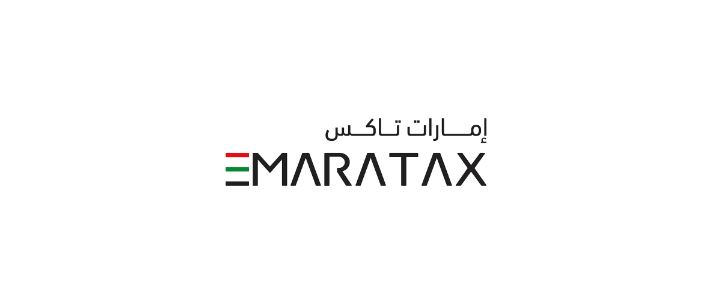Progressive Developments in Saudi Arabia’s Banking Sector
The latest Fiscal Year 2024 Budget Statement released by the Saudi Ministry of Finance highlights the significant changes and developments in Saudi Arabia’s banking sector.
The Fiscal Year 2024 Budget Statement focuses on the Kingdom’s ongoing work in improving its economy and financial policies, in line with the goals of Saudi Vision 2030. These reforms are pivotal in shaping the financial landscape of the country.
As per data from the Saudi Central Bank (SAMA), the sector continues to exhibit robustness and security. The first three quarters of FY 2023 saw a 9.4% increase in total bank assets, reaching SAR 3.9 trillion, surpassing the FY 2025 Financial Sector Development Program (FSDP) target of SAR 3.5 trillion. This growth primarily results from an increase in lending, with the loan portfolio constituting over 65% of total assets. And when compared to the same period in FY 2022, credit landed to the private sector rose by approximately 9.3%, while there was a slight 0.8% decrease in consumer loans, which make up about 18% of the total loan portfolio. The escalation in private sector credit is key to compensating the impact of rising interest rates on consumer loan growth.
By the end of Q3 in FY 2023, the volume of real estate loans granted by commercial banks had grown on an annual basis by 12.3%, reaching to about SAR 747.2 billion, which accounts for 29.4% of total bank credit. This increase is largely attributed to government initiatives promoting homeownership among citizens. Loans to small, medium, and micro enterprises also saw a significant 18.8% growth, despite increasing financing costs. The ratio of non-performing loans remained low at 1.69%, indicating a healthier state compared to pre-COVID-19 pandemic levels, while the capital adequacy ratio stood firm at 20.1%, well above the minimum recommendation of the Basel Committee on Banking Supervision, which state that the capital adequacy ratio not to be less than 10.5%.
Moreover, the money supply (M3) generated an 8.0% year-on-year increase by September of FY 2023, reaching SAR 2.66 trillion. This growth was fueled by a 49.4% rise in time and savings deposits and a 4.3% increase in currency in circulation. However, there was a decrease in other quasi-monetary and demand deposits. The expansion of the money supply reflects the ongoing improvement in economic growth and the influence of rising interest rates, which have encouraged a shift towards time and savings deposits. Additionally, by the end of September FY 2023, total bank credit had grown by about 9.9% compared to the previous year, further evidencing the positive momentum in economic activity. Bank claims on the public sector also rose by 9.5%, propelled by a 20.6% increase in bank credit to public institutions and a 6.8% rise in government and quasi-government bond issuance.
Chris Dixon, a partner who led the charge, says he has a ‘very long-term horizon’
Americans now think they need at least $1.25 million for retirement, a 20% increase from a year ago, according to a survey by Northwestern Mutual
Compliance with these deadlines is crucial to avoid administrative penalties.
The UAE’s Federal Tax Authority (FTA) is urging Corporate Taxpayers to adhere to submission deadlines to avoid fines. Specifically, Resident Juridical Persons with licenses issued in May (regardless of the year) must submit their Corporate Tax registration applications by July 31, 2024, in line with Federal Tax Authority Decision No. 3 of 2024.
This decision aligns with the Federal Decree-Law No. 47 of 2022 on the Taxation of Corporations and Businesses and its amendments, effective from March 1, 2024. The FTA stresses the importance of meeting these registration deadlines, which have been communicated through various media channels and direct outreach to registered company owners in the UAE.

Utilizing the EmaraTax Platform
Compliance with these deadlines is crucial to avoid administrative penalties. The deadlines apply to both juridical and natural persons, including Resident and Non-Resident Persons in the UAE. Detailed information on these deadlines and other relevant issuances can be found on the FTA’s official website.
According to the FTA’s Public Clarification, Resident Juridical Persons established or recognized before March 1, 2024, must submit their tax registration applications based on the month their license was issued. Those with expired licenses as of March 1, 2024, should submit their applications based on the original issuance month. For those holding multiple licenses, the earliest issuance date applies.
Administrative penalties for corporate tax violations have been in effect since August 1, 2023. To facilitate the registration process, taxpayers must use the “EmaraTax” digital platform, available 24/7, or seek assistance from accredited tax agents and government service centers.
The FTA has also emphasized the importance of providing accurate information and submitting updated supporting documents correctly with the electronic registration application, noting that registering for Corporate Tax for a juridical person requires uploading various documents, including the commercial license, the Emirates ID card, the passport of the authorized signatory, and proof of authorization for the authorized signatory.
A comprehensive video explaining the registration process through the “EmaraTax” platform is available on the FTA’s website. This platform, designed according to international best practices, aims to streamline the registration journey, submission of periodic returns, and payment of due taxes for all UAE taxpayers.
Chris Dixon, a partner who led the charge, says he has a ‘very long-term horizon’
Americans now think they need at least $1.25 million for retirement, a 20% increase from a year ago, according to a survey by Northwestern Mutual

















